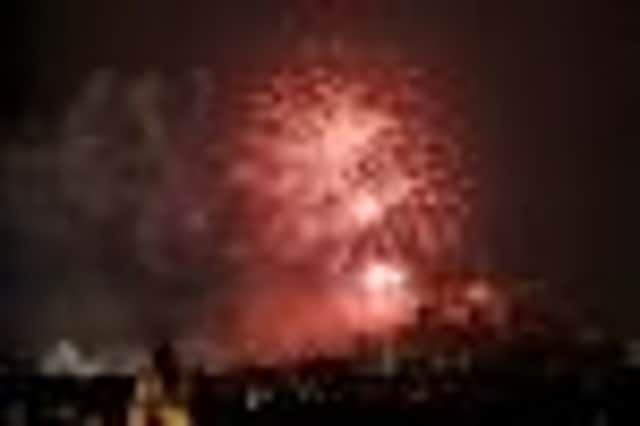Edinburgh Festival ends in a blaze of box office glory


Figures released yesterday (show box office takings reached a record £2.83 million, up 9 per cent on last year, with an 11 per cent increase in the number of tickets sold compared with 2011.
The capital’s festivals season came to a spectacular finale last night with the annual fireworks display over Edinburgh Castle.
Advertisement
Hide AdAdvertisement
Hide AdThousands of spectators flocked to watch the 45-minute show which was accompanied by a performance from the Scottish Chamber Orchestra playing a selection of music inspired by the Queen’s Diamond Jubilee and Shakespeare.
This year’s success for the EIF came a week after it the Edinburgh Fringe reported a drop of 1 per cent in ticket sales compared with 2011.
Although Festival director Jonathan Mills stressed that unlike previous years, the 2012 Festival would have “no theme” other than being about the values of peacefulness and sharing cultures, it featured a number of innovative venues and events he said attracted new audiences.
These included NVA’s Speed of Light, which saw a mass choreographed fusion of sport and art, with runners and members of the public heading to the summit of Arthur’s Seat at night while wearing light suits.
Another highlight was the “three great theatrical imaginations” staged at the Lowland Hall at Ingliston.
Last night, Mr Mills, who took over the helm in 2006, said he believed taking the Festival to new audiences and venues and people’s determination not to be ground down by the recession played a part in high sales.
“This year was a bigger Festival, which appealed to a more diverse audience,” he said. “Ingliston, for example, was not just exciting, it was theatres specially
installed for extraordinary events. Speed of Light also took the Festival out into new territory.
Advertisement
Hide AdAdvertisement
Hide Ad“The recession is an interesting factor, too. I used to talk to an aunt and my father who lived through the Great Depression, and one of the things that was most surprising was that there was a huge upsurge in entertainment. So there could be a correlation there.”
The Festival also generated controversy, after Mr Mills stood by his decision to invite the
Israeli government-sponsored Batsheva Dance Company to perform Hora – ignoring a letter from a group of ten artists for a “cultural boycott”.
A power failure at the Usher Hall on 14 August led to the cancellation of a performance by the London Philharmonic Orchestra just an hour before it was due to begin.
And last Wednesday, firefighters spent more than an hour pumping 6in of water from the same venue after heavy rain, ahead of a performance by
counter-tenor David Daniels.
Professor Paul Freathy, of the University of Stirling, said the EIF ticket sales showed it had fought off competition in an tough financial market.
“Any Festival now has to work a lot harder for its money. It cannot be assumed that because people have flocked to an event they will keep doing so,” he said.